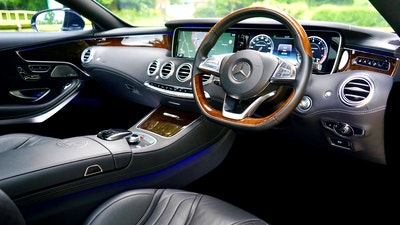9 Things To Consider Before Buying a Car
After your property, your car will most likely be your biggest expense, and when it comes to buying a new vehicle, it’s important that you’re not rushing into the decision. Make a mistake, and you’ll end up with an expensive mistake.
Below, we take a look at some of the key considerations that’ll ensure you end up with the car that’s right for you.
#1 What do You Need?
It’s best not to get too dazzled by automobile advertisements, or by the shiny and cool vehicles you see on the streets. When it comes to buying a car, you need to think about what you need. You have to think in terms of what is practical, rather than what you’re drawn to on a superficial level.
A rough and ready truck might look pretty impressive, but, if you live in a city, then it’s probably not going to be the most logical choice you can go for. Let your head do the talking.
#2 What Will You Need?
But of course, you shouldn’t only think about what you need right now. You’ll also want to think about the future, too. If you’re at a stage of your life where change is on the horizon — say, you’re thinking about having children, then you’ll want to think about a vehicle that’ll serve those needs.
It’s unlikely that you’ll replace your car within 3 – 5 years. When you’re thinking about your next vehicle, cast your mind forward, and think about what you’ll need in the coming years. If you’re planning to move to a space that gets more extreme weather (like snow, etc.), then you’ll need to think about how your vehicle will handle those conditions.
#3 How Important is the Car?
Cars aren’t of equal importance to all parties. It all depends on where you live, what you’ll need the vehicle for, and also how much you like driving. For some people, a car is little more than a bonus: they live in a modern city with excellent public transport, and their vehicle will only be used to make short trips here and there.
For others, it’s a necessity. If you live in a more rural area where public transport is non-existent, then you’ll be approaching the car-buying process from a different angle.
#4 How Much Can You Afford?
It’s of vital importance that you don’t overspend on your vehicle. It’s always tempting to bump up your budget a little if you see a slightly more expensive car that you know that you’d love to own, but this is to be resisted.
This is less an issue if you’re buying the car outright with cash (you can’t magic more money than you have), but is important to keep on mind if you’re planning on using a loan to buy the car. When you’re coming up with your car budget, use a loan estimator tool to figure out how you’ll need to pay back.
It’ll help to ensure that you only take out a loan that you know you can comfortably afford.
#5 What are the Extra Charges?
When buying a vehicle, it’s always important that you look beyond the sticker price, and calculate the longer-term costs of the vehicle. In reality, the initial cost is only the beginning. The bulk of the price will be taken up by things like tax, fuel, and services.
This can vary wildly from model to model. Cars can have different tax charges, fuel consumption, and service charges (rarer/more luxury vehicles are more expensive to repair, for instance). Before committing to a vehicle, make sure you have a solid understanding of the long term costs that it will incur.
#6 Used or New?
One of the bigger decisions that car-buyers have to make is whether they’re going to buy used, or new.
There are pros and cons to each, and really, the decision comes down to the individual and their situation. If you buy new, you’ll have the peace of mind of a warranty, and also that there’s nothing wrong with the car. Yet they are more expensive.
If you buy used, you’ll typically have greater options and the costs will be significantly cheaper; however, it’s not new, and the car will already have been on a journey (with problems and so forth) before you have the keys.
#7 Where Will You Buy It?
When it comes to buying a car, it’s important that you’re working with a dealership that has good deals and that you can trust. Everyone knows the idea of a slick car salesperson just saying anything to get a person to buy a car, but there are plenty of reliable car salespeople, too.
A recommendation from a friend or family member will be worth its weight in gold. If not, visit a few and compare prices and the general attitude of the staff before you commit to buying from one or the other.
You could also go online to scout out dealerships that suit what you are seeking. If you are looking to buy cars in Lightfoot, VA, for example, you might want to check out websites like Gloucester Toyota to see what they have on offer and if there is something that will suit your needs.
#8 How Much Can You Get For Your Present Vehicle?
It’s unlikely that this is going to be your first vehicle. It’ll likely be an upgrade. As such, you’ll need to think about how much you can get for your present vehicle. There can be a big difference between the amount you receive, and much of that has to do with how you present the car.
List it on reputable sites, make sure it’s clean and in great condition, and take professional looking photos. You’ll be amazed at what a difference these simple things can make.
#9Do You Know What You’re Looking At?
Not everyone is a car person. In fact, most people aren’t! As such, many people go into the car buying process without much understanding of what they’re looking at. If you’re only looking at the shape and color, it’s time to get reading! It’s what’s under the hood that counts.
If you’re simply not a technically-minded person, then take along a friend who does know their stuff. You’ll be thankful for it!
With these tips, you’ll end up with a car that leaves you with few regrets.
Are you thinking about buying a new car?








